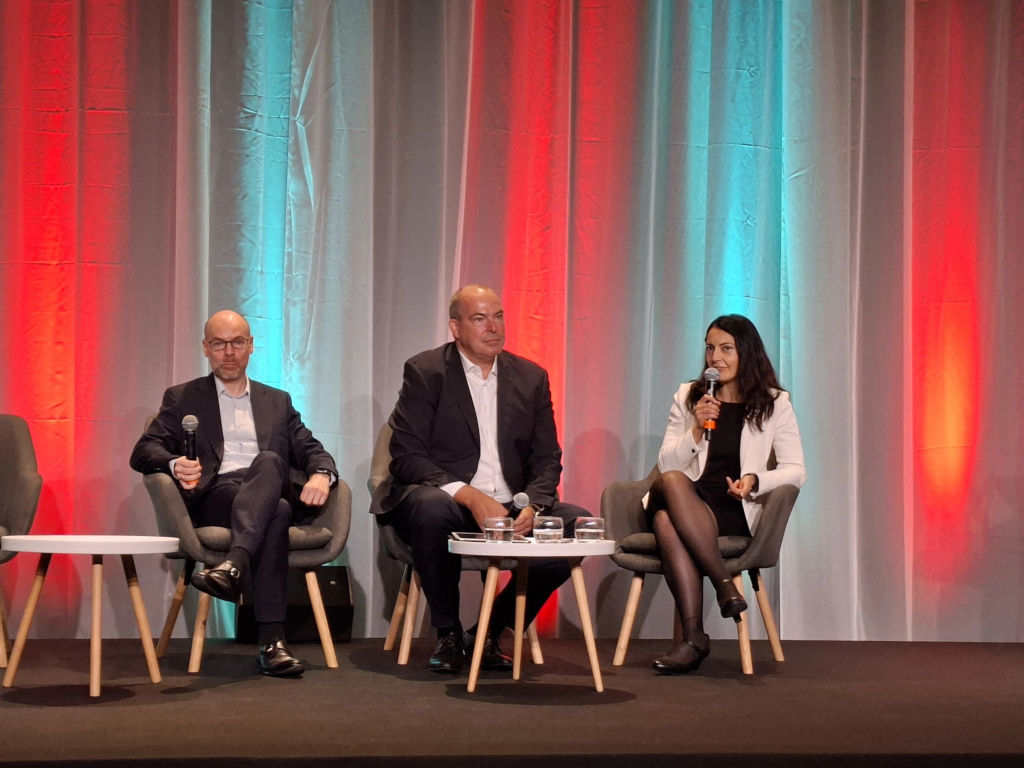Breaking Ground on EBV and MS
Highlights from ECTRIMS 2025 Educational Session
Posted on October 28, 2025 • 3 minutes • 434 words
Table of contents
At this year’s ECTRIMS Congress in Barcelona (24–26 September 2025), the EU Horizon-funded consortia BEHIND-MS and EBV-MS joined forces to host a highly engaging educational session titled: “Epstein-Barr Virus in Multiple Sclerosis: Where are we? Where should we go?”
The session explored the emerging evidence on the role of Epstein-Barr virus (EBV) in multiple sclerosis (MS) and examined how this knowledge could guide future prevention and treatment strategies.
The session was chaired by Prof. Jan Lünemann (University of Münster, BEHIND-MS consortium), Prof. Marianna Cortese (Harvard T.H. Chan School of Public Health in Boston, EBV-MS consortium), and Prof. Øivind Torkildsen (University of Bergen, EBV-MS consortium).

From left to right: Prof. Øivind Torkildsen, Prof. Jan Lünemann, and Prof. Marianna Cortese
Prof. Cortese opened the session with a compelling overview of the causal link between EBV and MS. While this connection had long been suspected, it was only in 2022 that her landmark study, involving a cohort of 10 million US military personnel, provided strong evidence for EBV as a leading cause of MS. Published in Science, these findings have reinvigorated research into EBV and MS, generating new funding opportunities and directly contributing to the establishment of both BEHIND-MS and EBV-MS consortia.
Prof. Lünemann then took the audience into the biology of EBV infection and its impact on the immune system - an effect that appears particularly pronounced in people with MS. He highlighted how EBV influences various immune cells, including B cells and T cells, and introduced the concept of molecular mimicry - a process in which the immune system confuses viral proteins with the body’s own proteins, potentially triggering autoimmune reactions. This presentation emphasized the focus of BEHIND-MS: understanding the mechanisms through which EBV infection contributes to MS.
Finally, Prof. Torkildsen connected these scientific insights to potential clinical applications. He shared research suggesting that antiviral treatments may reduce the risk of developing MS and explained how the EBV-MS consortium is actively exploring antivirals as a preventative or therapeutic option. He also underscored the collaborative nature of the two consortia, showing how their multidisciplinary approach is bringing researchers closer to understanding the EBV-MS link - a breakthrough that could both improve therapies and help prevent the onset of MS. The session underscored the exciting progress being made in unraveling the role of EBV in MS, while also emphasizing the value of collaborative, cross-disciplinary research. By bringing together expertise from diverse fields, these efforts are accelerating the pace of discovery and laying the groundwork for new strategies that could one day revolutionize treatment and prevention, ultimately improving outcomes and quality of life for people living with MS.
